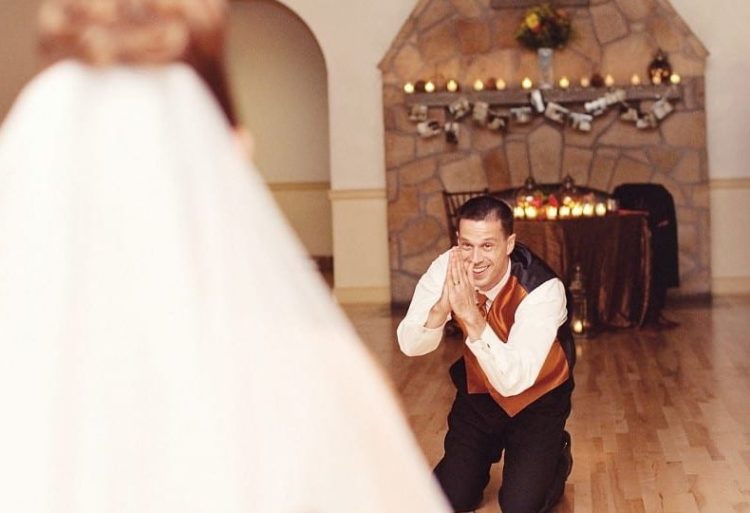
You probably know what prenups are and you probably don’t like them. Fortunately, there are other tools to help ensure a semblance of civility if your marriage goes south. One of these is the post-nuptial agreement. Postnuptial agreements are divorce agreements couples make after getting married.
Prenuptial agreements make people uncomfortable, which makes sense. You’re planning for an end to a marriage that hasn’t even begun, which makes all the vows you’re about to take—every use of the word “forever”—ring hollow. If you’re saying “til death do us part,” why do you need a fallback plan?
But divorces are an ever-present reality. America’s divorce rate has held steady since the ‘80s. The stats are clear: it could happen to you.
Through postnups, married couples can agree on how to divide marital property and care for children in the event the marriage ends in divorce
Postnups give married couples more control over their post-marriage lives then they’d have in a typical divorce proceeding. They can make choices about their property, assets, and children that otherwise might be made by a judge or a mediator.
While they’re useful for couples navigating complicated economic situations, they’re generally weapons of last resort for endangered marriages.
Who Owns What
As in a prenup, postnuptial agreements determine who owns what in a marriage. If you live one of the nine states with community property laws (California, Arizona, Nevada, Louisiana, Idaho, New Mexico, Washington, Texas, and Wisconsin) any property acquired by either spouse during a marriage belongs to both partners of the marriage. Other states have common law, where individual spouses own property individually by default. A postnuptial agreement lets you divvy up assets and property as you wish.
Who Gets A Lawyer?
The agreements are neither cheap or easy. To ensure that the agreement is fair and that the terms will hold up under legal scrutiny, each spouse should retain a separate attorney to draft a postnuptial agreement.
As family law attorney and president of the American Academy of Matrimonial Lawyers Madeline Marzano-Lesnevich explained, attorneys start by examining the assets. “Then we sit down and we tell a client if you were to go through a divorce, this is more than likely what you would receive,” Madeline Marzano-Lesnevich said. Once that’s determined, they look for wiggle room and negotiate the agreement.
Still The Less Common Option
Despite signs that postnuptial agreements are on the rise, they’re still less common than prenups by a wide margin. A New York City divorce attorney interviewed for this story said that while he drafts 20-30 prenups in a typical year he only works on 2-3 postnups during the same amount of time.
“In my experience practicing law in New Jersey, reconciliation agreements or post-nuptial agreements are relatively rare,” Marzano-Lesnevich said. “In talking to my colleagues that the same is most likely true across the country.”
Not As Compelling As A Prenup?
The reasons to sign a prenup are more compelling and clearly defined than the ones for signing a similar agreement after a wedding. Prenups come with a built-in threat: if you don’t sign, the marriage won’t happen.
Once the marriage is in place, there’s less economic motivation to negotiate divorce terms. Common law requires couples to divide assets in a fair and equitable manner in a divorce and Community Law evenly splits assets in a divorce. Most married people have good reason to think they’re better off not fussing with that arrangement.
Tools Of Reconciliation
With exceptions, postnuptial agreements generally arise after something bad happens in a marriage. “A postnuptial agreement is usually produced from some kind of serious strain or emotional fracture that directly impacts the marriage,” says South Carolina family law attorney James McLaren.
Postnuptial agreements can help married couples reconcile after a split—in fact, in New Jersey, where Marzano-Lesnevich practices law, they’re called reconciliation agreements. Often, they’ll work like this: an unfaithful spouse wants to stay married after an affair and the other spouse reluctant to trust them again. To stave off an immediate divorce, the cheater could offer his spouse favorable post-divorce terms. “The spouse is saying I will take you back and I’ll forgive the affairs but I wanna know that if we get divorced, I’m gonna get the house, I’m gonna get this, I’m gonna get that,” Marzano-Lesnevich says.
A Question of Assets
Happily married couples might craft a postnuptial agreement to protect assets. Couples with children from prior relationships into a marriage might use a postnuptial agreement plan to determine inheritances. Or one spouse could transfer ownership of a property or asset with the agreement that ownership would revert to the original spouse upon a divorce.
Keep in mind this is a legally risky maneuver. You’re allowed to transfer property to your spouse as proactive financial planning. But if you do it to evade creditors it’s considered fraudulent conveyance, which is illegal.
See You In Court?
But no matter why you agree to a postnup, it’s often a toss-up whether they’ll hold up in court. A handful of states don’t recognize them and they’re often difficult to enforce in the ones that do.
“We will do the best we can to make [the agreement] foolproof and court proof,” says Marzano-Lesnevich. “Sometimes they are and sometimes they’re not.”

















